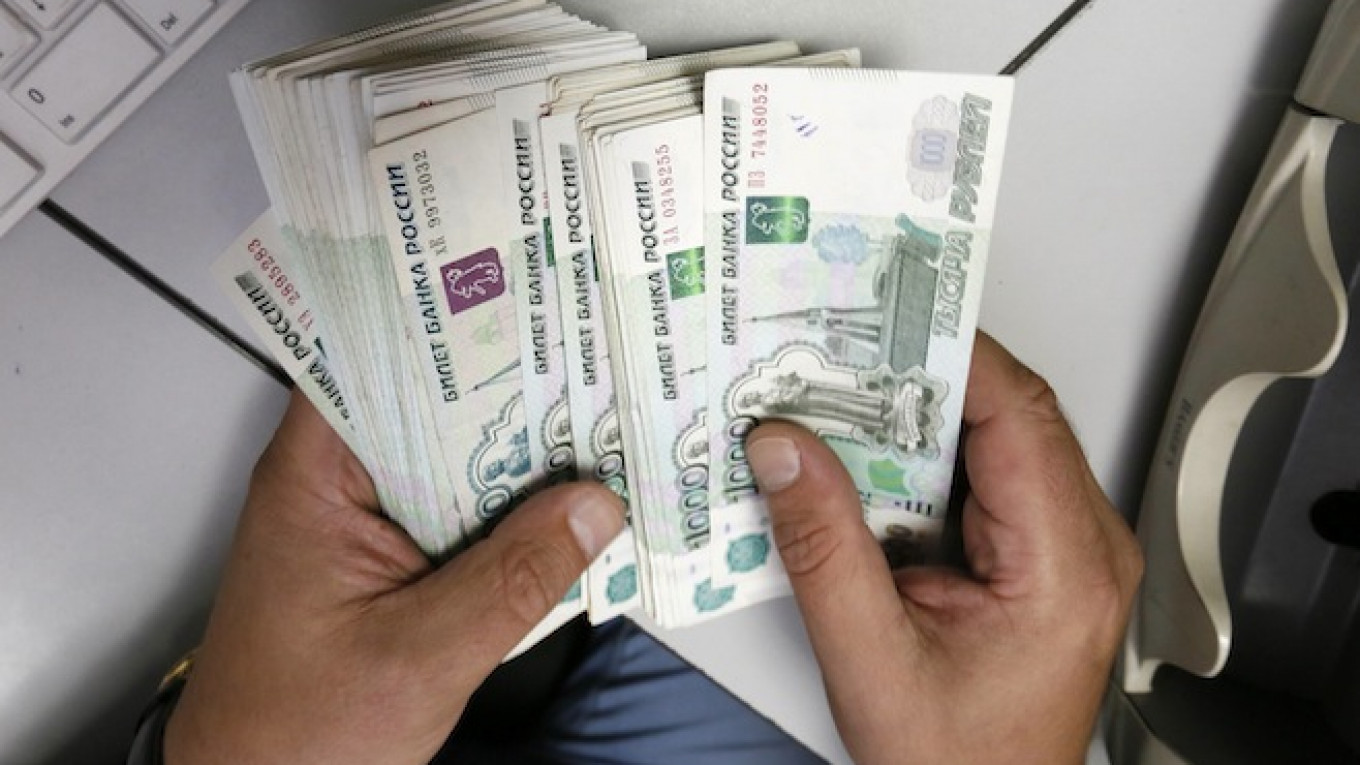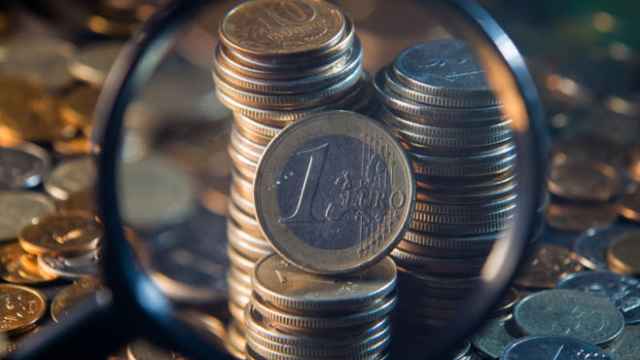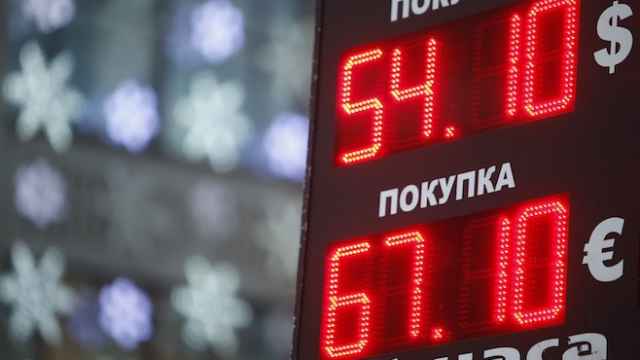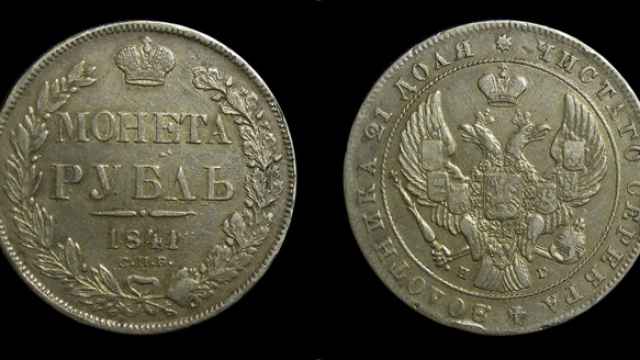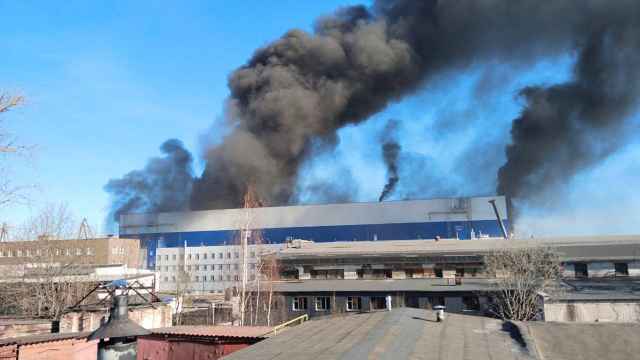Russia's ruble hit its highest levels in two weeks on Tuesday, shored up by informal capital control measures designed to head off a repeat of the inflation and protests that marked Russia's 1998 financial crisis.
The government set limits on net foreign exchange assets for state-owned exporters on Tuesday, while officials and banking sources said the Central Bank had installed supervisors at the currency trading desks of top state banks.
Early in the day, the ruble hit 52.88 to the U.S. dollar, its strongest since Dec. 8. It fell back later but was still up 0.3 percent at 55.34 at 6:29 p.m. in Moscow.
Economists said the measures were effectively a softer version of capital controls, but that President Vladimir Putin, who has drawn much of his popularity from financial stability and rising prosperity, would keep his pledge not to resort to full-fledged controls.
"They have already forced government exporters to sell their dollars, and the same will happen for banks I guess, so in a sense, capital controls are already in place," said Sergei Guriev, an exiled economist who fled Russia after criticizing the Kremlin.
Russians have followed hard currency movements closely ever since hyperinflation destroyed their savings after the collapse of the Soviet Union, before Putin came to power.
The ruble plunged to an all-time low in mid-December on the back of lower oil prices and Western sanctions, which make it almost impossible for Russian firms to borrow from the West.
Prime Minister Dmitry Medvedev said on Tuesday that Russia risks deep recession.
Before the recent rebound, the ruble fell as low as 80 per dollar, from the average of 30-35 seen in 2014's first half.
On Tuesday, the Russian government told large state exporting companies that by March 1 they must bring their net foreign exchange assets back to the levels of Oct. 1 and report to the Central Bank on a weekly basis.
Unofficial Controls
"Of course, the companies are free to hold on to the hard currency, they are also free to get involved in speculative operations. But then we reserve the right not to help them if and when they hit tough times," said one government source.
He said companies that needed to repay large foreign debts could continue to accumulate hard currency.
"If exporters are told not to increase their hard currency positions, it can be viewed as an unofficial reintroduction of capital controls," said Vladimir Osakovsky from Bank of America Merrill Lynch.
Limiting money flows, once considered a damaging constraint on open markets, has been more accepted in the aftermath of the 2008-2009 financial crisis as a tool sometimes needed to manage financial stability.
But in Russia, the issue has political resonance. Capital movements were liberalized only 10 years ago and restrictions bring back memories of the chaotic post-Soviet financial turbulence which Putin, now in his 15th year as Russia's leader, made it his mission to banish.
"[Full capital controls] would be a huge immediate blow to the economy," Mikhail Zadornov, chairman of the board of VTB-24 bank, told the newspaper Vedomosti on Tuesday.
"It would intensify capital outflows and cause a complete loss of confidence in the country among both domestic and foreign investors," Zadornov said.
Pragmatic Approach
Instead, Russian authorities are being pragmatic.
Four banking sources and sources close to the government said that the Central Bank had last week begun sending supervisors to monitor currency trading at major Russian banks.
"There was panic," said a source close to the government. "Something had to be done and we took some measures."
The Central Bank expects net capital outflows to hit $130 billion this year and Russia can ill afford to lose any more, with economists forecasting that an already slowing economy will shrink 3.6 percent next year.
"Yes, we have to report all of our activities to them, they are very meticulous," said a source at one of Russia's top five banks.
Another source at a large bank said: "As of Monday [Dec. 16], currency comptrollers have been sitting in and monitoring our currency positions, checking who bought foreign currency."
The Central Bank declined to comment on this, telling Reuters only that it would hold talks with exporters about maintaining stability on the foreign exchange market.
Traders said the ruble's recent rise, for a couple of sessions now, was due partly to the government orders and partly to regular tax payments, which require exporters to sell dollars or euros for rubles. The tax payments are to peak around Dec. 25.
The government's order to sell hard currency was given to gas firm Gazprom, the oil firms Rosneft and Zarubezhneft, and the diamond producers Alrosa and Kristall.
"I can imagine for a while they will use these capital-control-like measures without full-blown capital controls," Guriev said. "But if depreciation continues, they may actually do this."
A Message from The Moscow Times:
Dear readers,
We are facing unprecedented challenges. Russia's Prosecutor General's Office has designated The Moscow Times as an "undesirable" organization, criminalizing our work and putting our staff at risk of prosecution. This follows our earlier unjust labeling as a "foreign agent."
These actions are direct attempts to silence independent journalism in Russia. The authorities claim our work "discredits the decisions of the Russian leadership." We see things differently: we strive to provide accurate, unbiased reporting on Russia.
We, the journalists of The Moscow Times, refuse to be silenced. But to continue our work, we need your help.
Your support, no matter how small, makes a world of difference. If you can, please support us monthly starting from just $2. It's quick to set up, and every contribution makes a significant impact.
By supporting The Moscow Times, you're defending open, independent journalism in the face of repression. Thank you for standing with us.
Remind me later.


